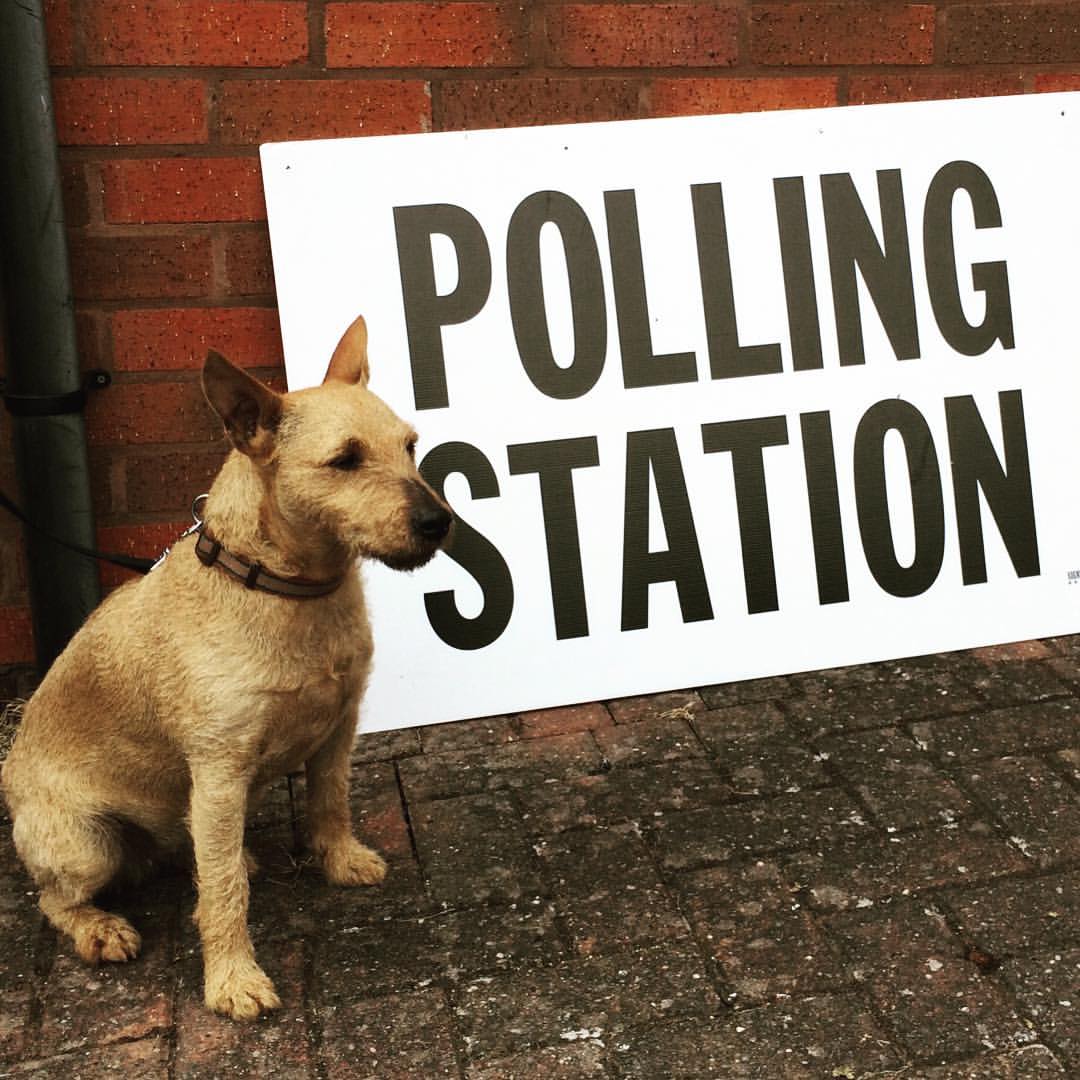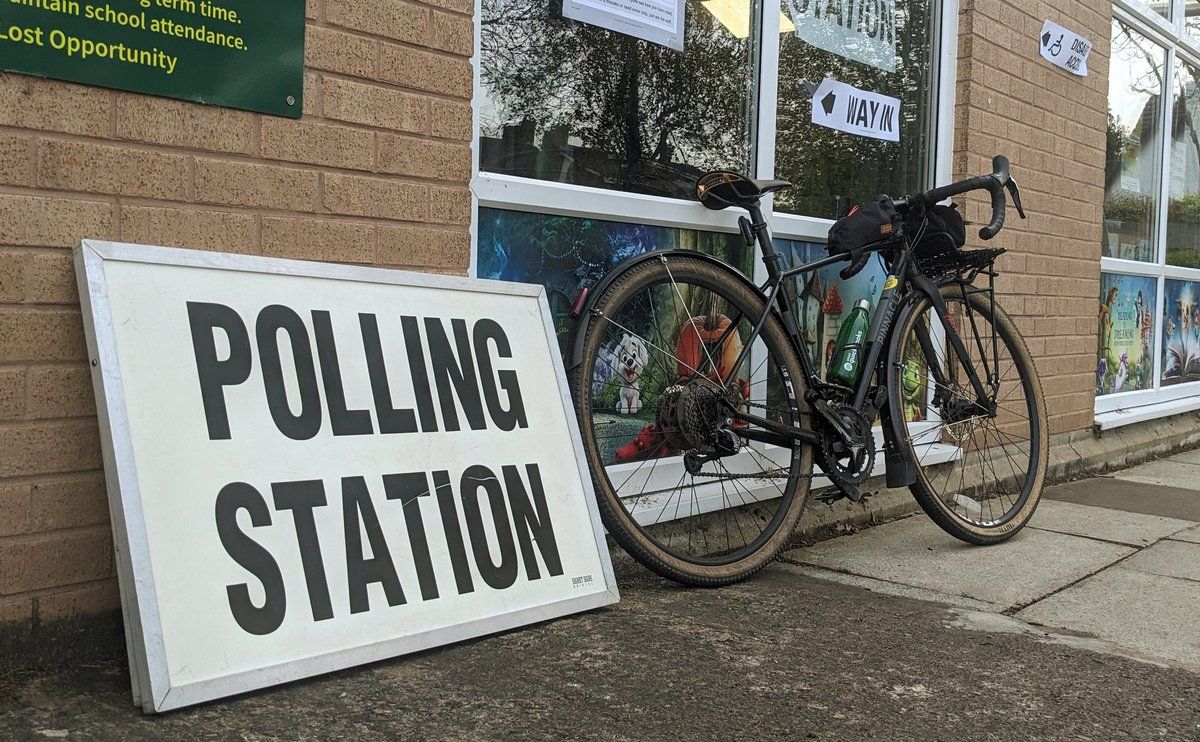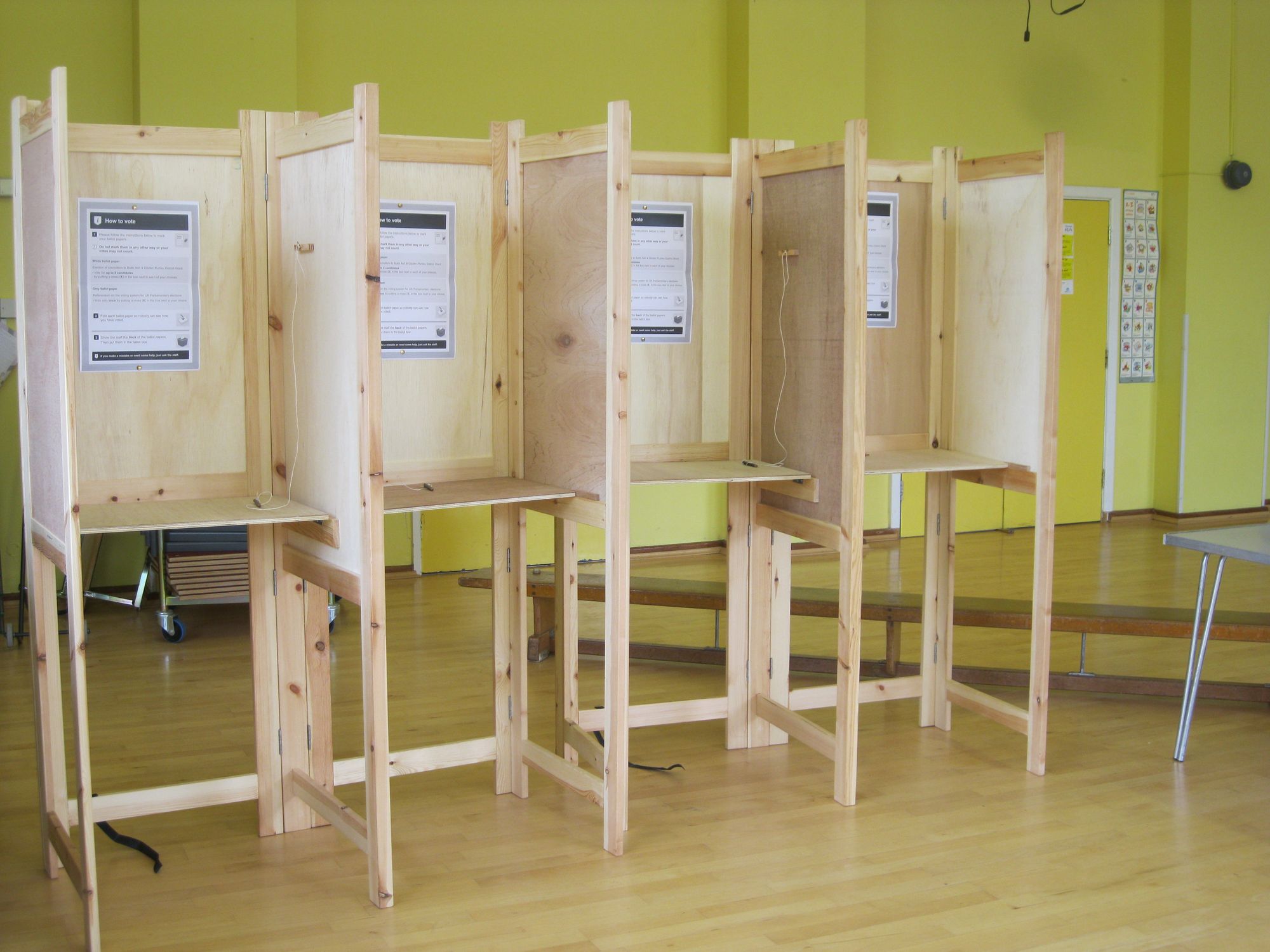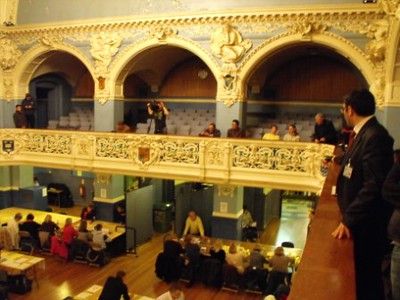What happens on polling day?

Not all heroes wear capes. Some have rulers. Or spatulas.
Have you ever wondered about how you vote? Not the way you vote, of course, but the mechanics of it. In this latest long read, we demystify some of what goes on in election times, where a crowd of unsung heroes keep the wheels of democracy turning.
Registering to vote
Councils send a letter around once a year to confirm the details of the people living in that property. In Oxfordshire, it’s the City and District councils which run the elections.
If there's no response, a council-employed canvasser may visit to check details. But most people register to vote online. Whichever way you do it, this creates an Electoral Register. If you’ve moved recently, you should contact the council to check you’re on it.
(The deadline to register was 18 June, so if you haven't done this already… better luck next time?)
Canvassing
This Electoral Register is then made available to political parties – although they do, of course, need to abide by strict GDPR guidelines. The parties use this as the basis for a database tracking likely supporters.
During the year, or during election times, canvassers from political parties may knock on your door. Regardless of the party, depending on your answers, they will make an assessment as to whether you are a supporter or not. They may send you literature based on your preferences, delivered by volunteers with spatulas to avoid dogs biting fingers.
Word of advice for all political activists when delivering leaflets. Take a wooden spatula with you, curl the leaflet around top then push through letterbox - you won't get your finger bitten off. You also get them through those letterboxes like yard brushes. pic.twitter.com/esMFCd4ss8
— Sefton Conservative Federation (@sefton_central) March 31, 2024
The volunteers hate floor level letterboxes with a passion, and there is an art to designing and delivering literature that doesn’t land in a crumpled heap on the floor.
There is no obligation for you to tell the canvassers anything. They should make sure the literature includes a GDPR clause to explain that they will be using your answers in data capture. This is usually a campaign leaflet, with a small print clause at the bottom.
On voting day, if they think you are a supporter, you will get a knock (or more than one!) on the door to remind you to go out to vote. This is called Getting Out the Vote, or GOTV. Activists of all parties brave rain, sunburn, blisters, dogs and random abuse. Whatever your politics, do be nice to them. They're doing their best.
On polling day
In a tight race there will be leaflets the night before or the morning of polling day. This is the day where activists GOTV – if it’s going to be close, they need every likely household to come out.


You too can take part in the hashtags 'Dogs at polling stations' (source Wikimedia, cc license) or 'Bikes at polling stations' Source x.com @edwardlamb, used with permission
If it's a hotly contested area, there are likely to be ‘tellers’ sitting outside the polling station.
Their job is to take your poll card number. These numbers correspond to the electoral register. Once you’ve voted and provided your polling card number, the relevant political parties will strike you off their list and won’t knock on your door again. On the other hand, if the tellers don’t see you but the canvassers had previously marked you down as “probably going to vote for us”, expect knocks –and possibly even phone calls – until they are sure you have voted.
There are strict rules around telling. Tellers must remain outside the polling station, even in the pouring rain. They are absolutely not allowed to influence your vote, or display any campaign material other than a rosette or badge. (It is, of course, a good indication as to which parties are contesting that area.)
No one is obliged to hand over their polling card number. But it's a quick way to stop people knocking on your door. and if you like the party concerned, saves them some shoe leather. They can't ascertain which way you voted from your poll card number either – just that you have.
In the polling station
This is where the real superheroes are found.
Polling station staff are responsible for making sure that the proper voting procedures are followed. Any work carried out is subject to strict secrecy requirements. They ensure that voters are able to cast their vote in secret, free from influence and in a calm atmosphere.
On the day of the election, staff are on duty at their polling station from 6.30am until shortly after 10pm. It's a long day – very long if you're in a village hall with a tiny population. Polling station staff are not permitted to leave the premises during these hours. They are very much the unsung heroes of the entire democratic process: without them, there would be no election. Be nice to them too. (Maybe bring them a cold drink if it's a hot day?)
When you arrive, you're checked off the electoral register to make sure you are eligible to vote, and that you only vote once. (Don’t forget your photo ID!) This is done by Poll Clerks who assist the Presiding Officer to run a polling station. They help to set up polling station equipment, assist in the issue of ballot papers to members of the public, mark the electoral register and assist in the accurate completion of paperwork.
You will be given a ballot paper (or papers, depending on the elections running that day), and should go to a polling booth to mark your paper in privacy. You should not take a photograph of that paper.

The polling station is run by a Presiding Officer. They are responsible for conduct in their polling station and have a good knowledge of voting procedures. They have normally worked as a Poll Clerk previously and will be responsible for complying with all instructions and ensuring the integrity and secrecy of the ballot. Presiding Officers assign work to the Poll Clerks, ensuring the accuracy of the poll and account for all of the ballot papers. They are also responsible for collecting and delivering the ballot boxes to the polling station and then to the count venue, and will have responsibility for ensuring their polling station is open and closed on the day.
For those who have voted by post, Postal Vote Assistants assist with the opening of returned postal voting ballot packs.
When the polls close
At 10pm the polls close. Runners retrieve the ballot boxes and stationery from the Presiding Officers’ vehicles, and deliver them quickly to the appropriate count zone in the count venue.
In a general election, there is often a scrap to see which constituency can get its vote count done quickest, meaning they get the first TV coverage. This is usually a geographically small constituency, where the boxes don't have to travel far. Newcastle and Sunderland vie for this top spot each time – the fastest count recorded was in 2015 where Sunderland South returned a Labour MP in just 48 minutes – but this year, nearby Blyth & Ashington is the hot favourite. In this case, as you will see on TV coverage, the runners do literally run with the boxes, wearing trainers.
And then the count begins. But that’s for another article, which we’ll be publishing on Election Day.

